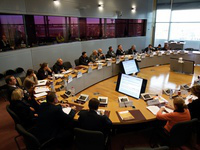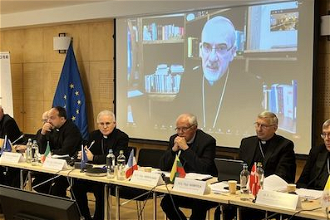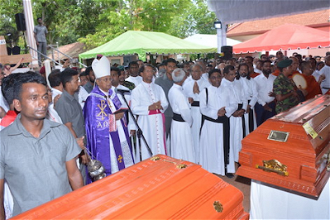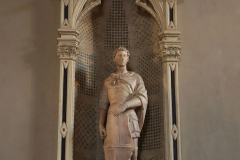EU churches on frontline of integration

The European Commission convened a Dialogue Seminar on Wednesday, focused on looking beyond the immediate humanitarian crisis provoked by the recent influx of migrants and refugees on European soil. COMECE, CEC, and CCME gathered experts and Church leaders from across Europe to discuss models of integration, best practices, and the fundamental values that guide integration within the European Union.
Welcoming migrants, asylum seekers, and refugees became an urgent challenge, especially for Member States with an external border of the EU. The crisis became acute during the summer of 2015 and moved migration issues to the top of the EU political agenda.
It was gratifying to witness the preparedness of public authorities and the hospitality of many Christian Churches and religious communities throughout Europe. In their everyday work, Churches in meaningful ways contributed to the integration of the newly arrived. In their work they were addressing migrants and refugees as well as host societies.
The greater challenge, however, is the long-term integration of migrants and refugees into their new home societies and respective labour markets. This
is a challenge that all within the EU will face for years to come. It is also a challenge that requires clear policy objectives, coordinated response, and concerted effort from both migrants and European societies. Close cooperation between public authorities at all levels, civil society, Churches and religious communities will strengthen responses to the crisis.
Dialogue Seminar participants introduced a number of models for integration, often based on the deep experience of Churches in welcoming migrants and
refugees to Europe. They also exchanged integration success stories, and shared ideas on how to cultivate a more positive public image of all
migrants and refugees in Europe.
All participants were concerned with the personal and human aspect of the current crisis, and stressed that it is not about statistics and economics, but about human dignity and common good. They also noted that the Churches in Europe are often the first and most important point of contact to migrants and refugees. Through welcoming Christian communities, newcomers find the support they need to begin adapting to their new society. Participants committed themselves to providing space for encounter between migrants and refugees and host societies, and a space for addressing fears of receiving communities.
COMECE, the Commission of the Bishops' Conferences of the European Community, is made up of Bishops delegated by the Catholic Bishops' Conferences of the 28 Member States of the European Union. In accordance with its Mission as defined in its Statutes, COMECE monitors the political process of the European Union in all areas of interest to the Church.
The Conference of European Churches (CEC) is a fellowship of some 114 Orthodox, Protestant, Anglican and Old Catholic Churches from all countries of Europe, plus 40 national council of churches and organisations in partnership. CEC was founded in 1959. It has offices in Brussels and Strasbourg.
The Churches' Commission for Migrants in Europe (CCME) is the ecumenical agency on migration and integration, asylum and refugees, and against racism
and discrimination in Europe. Members are Anglican, Orthodox and Protestant Churches and Councils of Churches as well as church-related agencies in
presently 18 European countries. CCME cooperates with the Conference of European Churches and the World Council of Churches.
Source: COMECE
For more information see: www.comece.eu





















